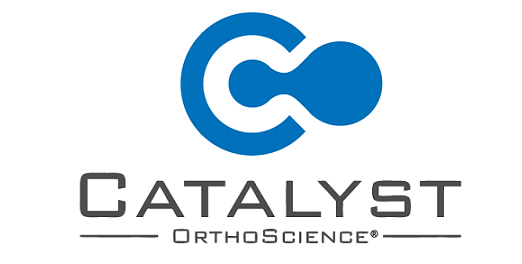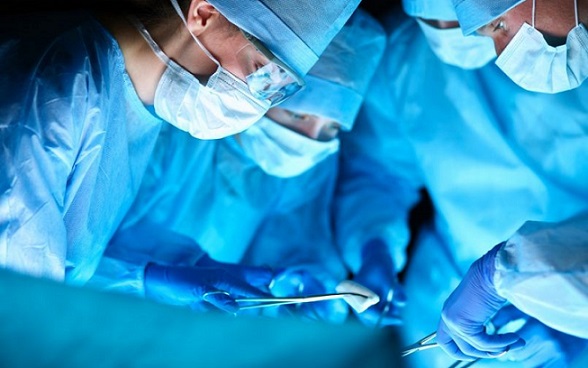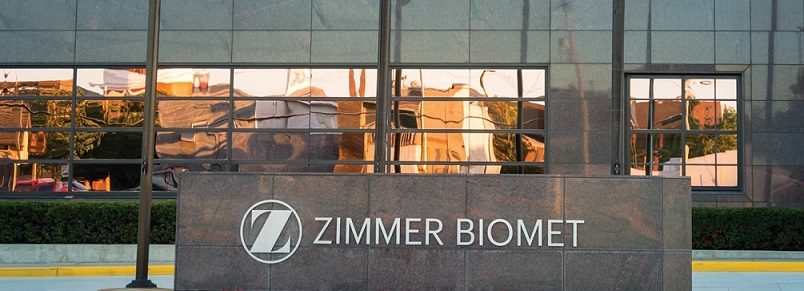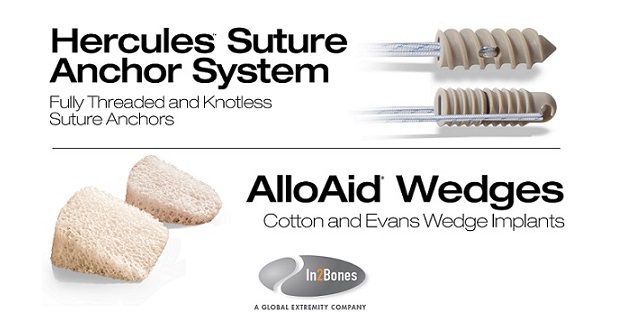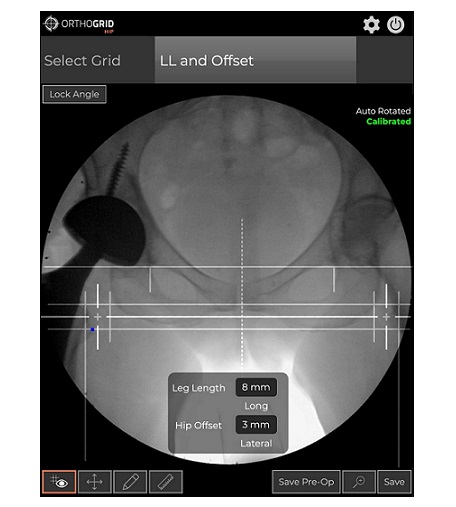Retrospective case series published in the Journal of Shoulder and Elbow Surgery examines 63 shoulders in patients up to 85 years of age; outcomes show significant improvements in motion and patient-reported measures
NAPLES, Fla.—Catalyst OrthoScience Inc. (Catalyst), a medical device company focused on the upper extremity orthopedics market, today announced a new study recently published in the Journal of Shoulder and Elbow Surgery that shows positive data around the use of the Catalyst CSR™ Total Shoulder System in adult arthroplasty patients of all ages, rather than just younger patients. The retrospective case series examines the initial cohort of patients that received an anatomic total shoulder arthroplasty (TSA) using the Catalyst CSR system from August 2016 to August 2017. Patients were evaluated at multiple time points postoperatively with a minimum of two-year follow-up.
The selection criteria of patients were broad and included all patients with “glenohumeral joint arthritis with an intact rotator cuff, regardless of patient age.” No cases in this continuous series of patients were converted to a stemmed TSA device intraoperatively due to bone quality. This has not been the case in previous studies for stemless implants,1 and may be attributed to the unique, patented design of the Catalyst CSR humeral implant. This is also the first study to report clinical outcomes using an ellipsoid-shaped humeral head implant, which better resembles the native humeral shape and has been shown to perform superiorly in biomechanical studies.2, 3 Catalyst OrthoScience is the first orthopedic company to offer ellipsoid implants to patients.
Highlights of the study include:
- At a two-year minimum follow-up, a TSA using the stemless, ellipsoid Catalyst CSR system provided positive results, with statistically significant and clinically meaningful improvements in all range of motion outcomes, high patient satisfaction and no signs of loosening.
- Sixty-three shoulders in 57 patients with a mean age of 73 years (range of 60-85 years old) were included in the study. While stemless shoulder designs have been previously thought to be better suited only for younger patients, this cohort represents a wider age population than groups that were previously studied. This study provides evidence that the stemless, ellipsoid Catalyst CSR system may be used safely in adult arthroplasty patients of all ages with good clinical outcomes.
- Patient-reported outcomes showed statistically significant improvements preoperatively to postoperatively, exceeding the minimal clinically important difference (MCID) and substantial clinical benefit (SCB). Several of these milestones were achieved for patients as early as six weeks postoperatively and at all time points thereafter.
- There was a low rate of complications and no implant failures in this study group.
“This study is the first to report on clinical results with an ellipsoid implant used in shoulder arthroplasty,” said Theodore A. Blaine, MD, sports medicine surgeon at Hospital for Special Surgery (HSS), and professor of orthopedic surgery at Weill Cornell Medical College. “The Catalyst CSR system’s ellipsoid-shaped articular surface and unique multiplanar, stemless fixation that rests on dense subchondral bone is shown not only to be safe and effective for patients of a wide range of ages, but also provides significant clinical improvement in all outcome measures studied.”
“The data demonstrates that the patients not only do very well, but do so quickly, with most measures reaching the benchmark of substantial clinical benefit by six weeks,” said Steven Goldberg, MD, lead author on the study. “This is likely due to the bone preserving procedure and less dissection required to insert the Catalyst CSR replacement.”
Designed by surgeons for surgeons, the Catalyst CSR system represents the next evolution in shoulder surgery. The system’s humeral implant is engineered to accurately replace the elliptical shape of the patient’s native non-spherical humeral head. The simple surgical technique creates a unique, multiplanar chamfer cut geometry on the humeral head that minimizes bone removal and preserves the strongest, densest bone for the humeral component fixation – similar to modern knee replacement. Patented, angled glenoid instruments aid in the glenoid exposure and lessen retraction on the soft tissue. The precision of the system’s unique instrumented technique and implant design yields highly accurate and repeatable restoration of the native humeral anatomy. The system’s single tray design is easily adaptable for both hospital and ambulatory surgery center procedures. These benefits position the Catalyst CSR system as an attractive solution for anatomic total shoulder replacement surgery.
References:
- Churchill RS, Chuinard C, Wiater JM, Friedman R, Freehill M, Jacobson S et al. Clinical and Radiographic Outcomes of the Simpliciti Canal-Sparing Shoulder Arthroplasty System: A Prospective Two-Year Multicenter Study. J Bone Joint Surg Am 2016;98:552-560. 10.2106/JBJS.15.00181
- Jun BJ, Iannotti JP, McGarry MH, Yoo JC, Quigley RJ, Lee TQ. The effects of prosthetic humeral head shape on glenohumeral joint kinematics: a comparison of non-spherical and spherical prosthetic heads to the native humeral head. J Shoulder Elbow Surg 2013;22:1423-1432. 10.1016/j.jse.2013.01.002
- Jun BJ, Lee TQ, McGarry MH, Quigley RJ, Shin SJ, Iannotti JP. The effects 500 of prosthetic humeral head shape on glenohumeral joint kinematics during humeral axial rotation in total shoulder arthroplasty. J Shoulder Elbow Surg 2016;25:1084-1093. 10.1016/j.jse.2015.11.058
About Catalyst OrthoScience Inc.
Catalyst OrthoScience develops innovative medical solutions that make orthopedic surgery less invasive and more efficient for both surgeons and patients. Catalyst was founded in 2014 by orthopedic surgeon Steven Goldberg, M.D., who saw the need to make shoulder replacement surgery less invasive and give patients a more natural-feeling shoulder after surgery.
The Catalyst CSR Total Shoulder System is unique, offering precision and accuracy in shoulder restoration while preserving the patient’s bone and soft tissue. The Catalyst CSR is a single-tray, bone-preserving total shoulder arthroplasty system containing a precision elliptical humeral head and less invasive glenoid component, using patented instrumentation designed for consistent anatomic joint line restoration and glenoid insertion. The Catalyst CSR system can be used in both inpatient and outpatient settings and was cleared for use by the FDA in 2016.
Catalyst OrthoScience has a growing portfolio of U.S. patents with several more pending nationally and internationally. The company is headquartered in Naples, Fla., and its products are available across the U.S. For additional information on the company, please visit www.CatalystOrtho.com/.
